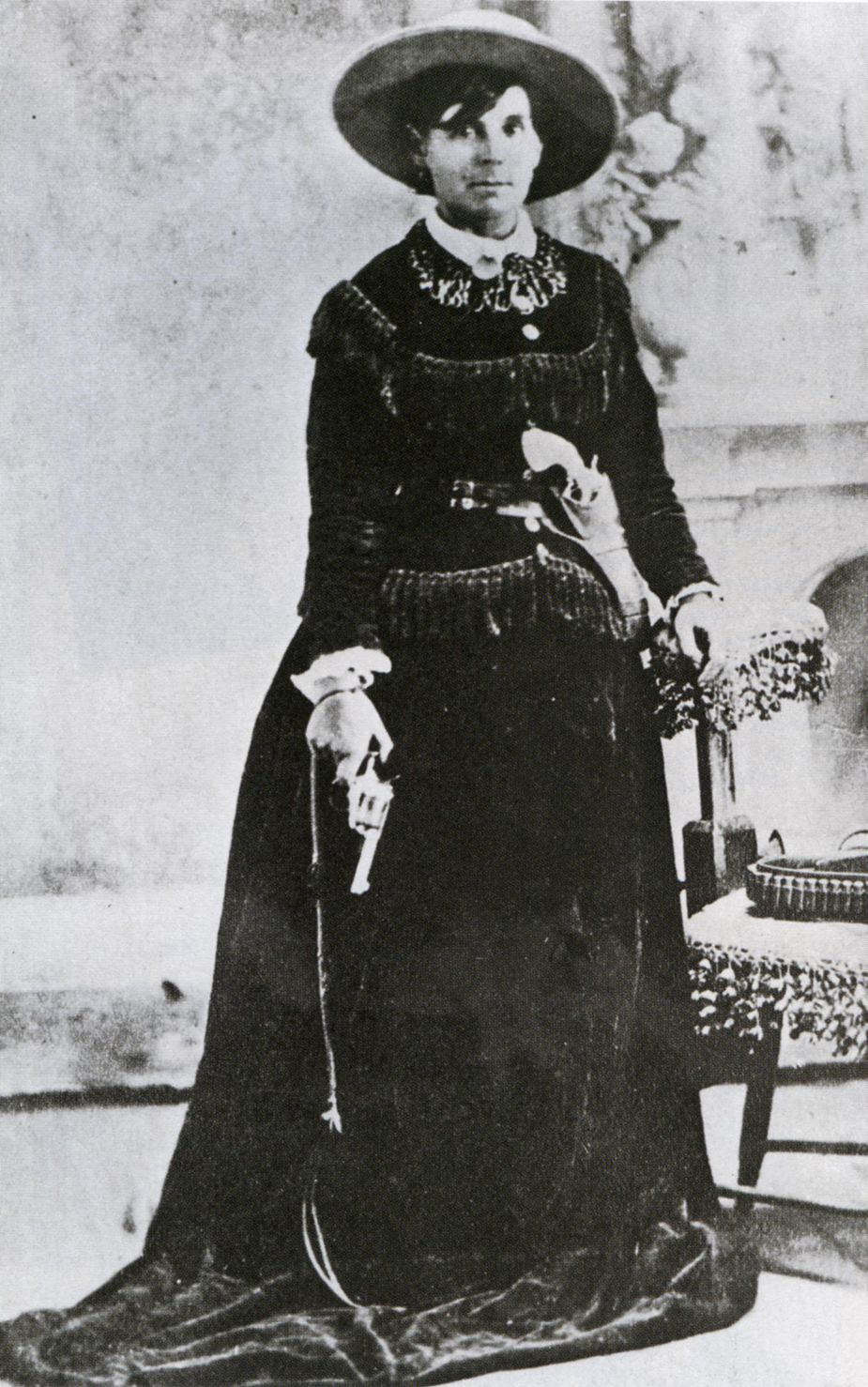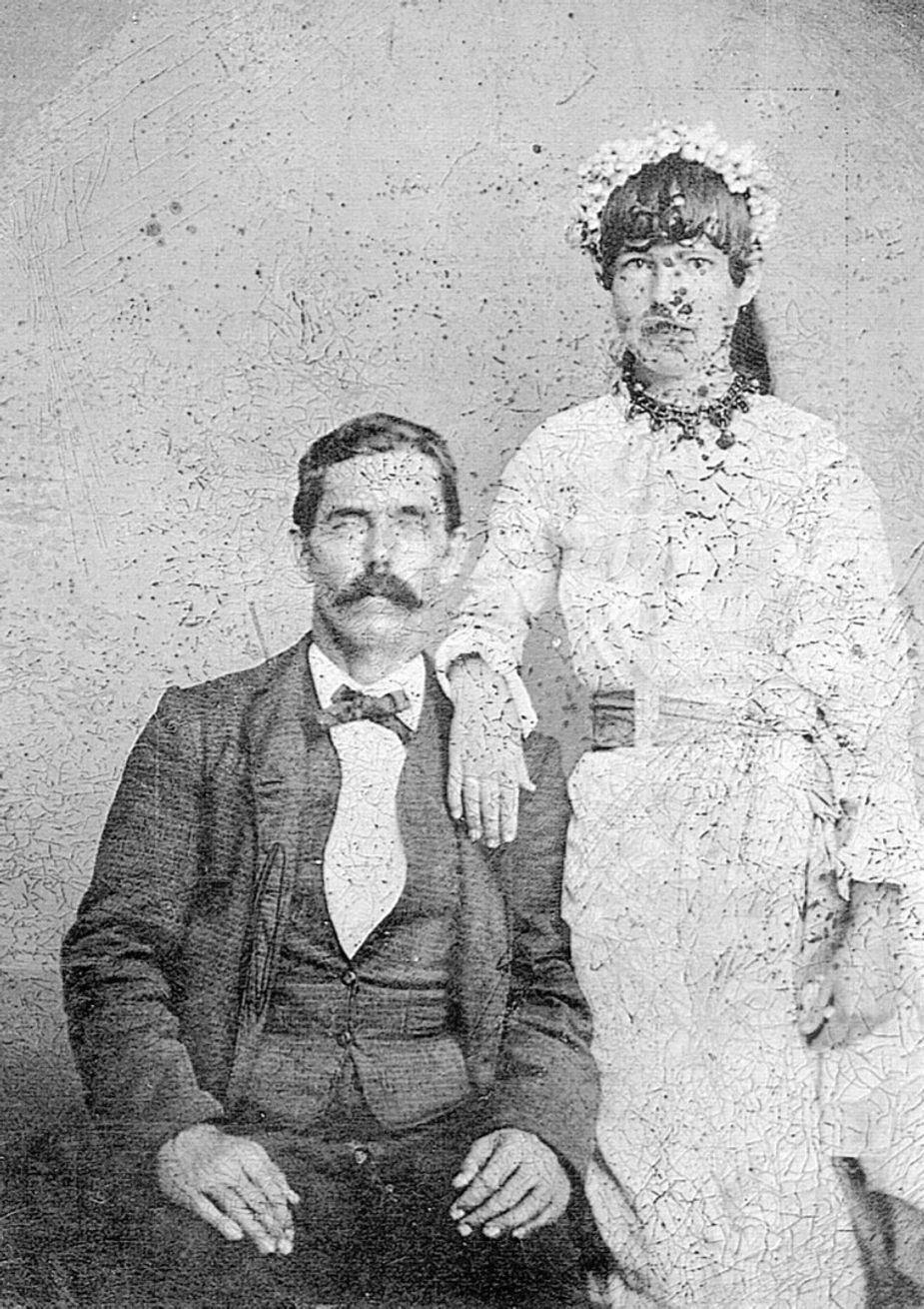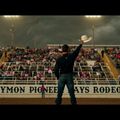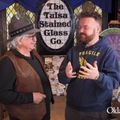Times Were Never Simple
Published June 2020
By Nathan Gunter | 9 min read
There’s a line in the Oklahoma Today style guide: “Never refer to the past as a simpler time.”
I added it myself several years ago when then-editor Steffie Corcoran and I decided to give the magazine’s style guide a long-overdue update.
The specific incident that spurred this addition is lost to me now, but it almost certainly was the inclusion by one of our writers of this assertion in a history piece about the Wild West. Thinking about this now, especially in the time of COVID-19, George Floyd, and the looming presidential election, I almost laugh, because it feels like no time is more difficult or less simple than now. We live in a complicated world full of rules and best practices most of us struggle to understand—much less follow—and it can be easy to long for a past that seemed less morally upside-down, less unintelligibly complex.

Famed female outlaw Belle Starr's life was not a simple one.
But I stand by the inclusion of this rule. You see, in about two days, our July/August issue will be on its way to the printer, and our cover feature is a history piece by our managing editor, Karlie Ybarra—her first historical feature ever to appear in the magazine—about the famous female outlaw Belle Starr.
By all accounts, Belle Starr—born Myra Maybelle Shirley—grew up in a well-to-do household. And still, her life was unbelievably complicated, especially after she was sixteen, and her brother Bud was killed during his time with Quantrill’s Raiders. I won’t ruin the rest of the story for you, but to my mind, it seems that whatever path Myra Maybelle walked in this life—accounts vary, to say the least—much of it was guided by the trauma she experienced as a result of Bud’s death.
Two of my ancestors were sharecroppers who rented land from Belle Starr around the time of her murder, and their lives don’t appear to have been any easier than Belle’s (you’ll also read that story in this issue’s editor’s letter). And we tell stories like this in Oklahoma Today all the time, from Quraysh Ali Lansana’s amazing pieces about the Tulsa Race Massacre—that issue is available now—and the Civil Rights Movement in Oklahoma to Jim Logan’s masterful and empathetic retelling of the Battle of the Washita in our November/December 2018 issue. John Berryman, Roger Miller, Quanah Parker, Sammi Smith, Lois Smoky, Temple Houston, Geronimo—we’ve shared all their stories and more in our pages, and never once have I finished reading one of them and thought, “Dang, that sure was a simpler time.”
Current horrors aside, I don’t think I’d trade living in 2020 for living in 1920, or 1870, or any other time frequently noted as simpler. Because the fact is, they weren’t simpler in any meaningful way. Maybe I’ve been spoiled by indoor plumbing and my Nintendo Switch, but I don’t think that's all. Whatever challenges our current world is giving us—and it’s hurling them at us like some sort of dystopian nightmare pitching machine—I’m not sure they are solved by removing modern medicine, reliable transportation, or central air conditioning.
So why do we glorify the past? Aforementioned current events make it tempting to yearn for an idealized yester, to trade this era’s problems for another’s. This is especially true when we talk about the Wild West, which—being the magazine of the state once known as Indian Territory—we do a lot. Like many Oklahomans, I grew up watching Western films. I think I’ve seen John Wayne’s entire oeuvre. But as Karlie learned working on her story about Belle Starr—as we learn with every story we create—the truth and the legend are wildly divergent. History—turn on the television and tell me I’m not wrong—is complicated and confusing, events happening faster than we can keep up with or process them. Legend is comforting; it has an arc, a shiny metal scaffolding of story structure that makes us feel comfortable, even when our heroes don’t come out victorious in the end. Actual fact complicates and shakes this scaffolding, throwing into sharp relief our misconceptions about white hats, black hats, and the huge gulf we like to imagine lies between them.
It’s tempting to refer to the past as a simpler time, because its problems are largely solved or at least filed neatly away. It feels less threatening, less immediate, and less real. I caught myself thinking the other day how glad I am to have grown up in the 1980s, because it felt like a safer, easier time—but then I remembered that, for the entire duration of the 1980s, I was a child. Of course my life seemed easier and happier then—I didn’t have a job, a marriage, high blood pressure, or bills to worry about. My biggest concerns were: Will I get the Wade Boggs baseball card I needed to finish my set? What is Mom making for dinner? How in the absolute heck do you beat the seventh castle in The Legend of Zelda?

Editor in chief Nathan Gunter's great-great-great grandparents, Joseph and Alice Tate.
I love our history pieces precisely because the past was such a trial, every day a struggle for survival that throws quite a bucket of cold-water perspective on my irritation at wearing a mask to the grocery store (though seriously, someone invent one that doesn’t itch my beard), losing the Wi-Fi signal, or standing in line at the airport’s TSA checkpoint, which at this point is a fate devoutly to be wished. I think, when reading them, of those old hymns that talk about a time in Heaven when we’ll all share the stories of How We Made It Through. I think about my hard-charging ancestors who came to this land nearly 150 years ago and how much of my current lovely, imperfect life was purchased by their struggle. I’d never dream of dishonoring their hard work by calling it simple.
Times are tough now. We hope they don’t get any tougher, that progress and reconciliation and rebirth can occur out of the swarm of tragedy and farce that is our current situation. But in studying the past, in acknowledging its missteps and tests and hard-won victories, we can meet our ancestors face-to-face, learn from them, and look into an uncertain future with steel in our spines, empathy in our hearts, and new, precious breath on our lips that say, “Thank you.”
"Birds of a Feather"
"Weekly Events Calendar June 8-14, 2020"
You May Like
Weekly Events Calendar: April 28-May 4, 2025
This week in Oklahoma: A week of fun and rodeo in Guymon; a game show of sorts in Clinton; and a royal good time in Muskogee.
This week in Oklahoma: A week of fun and rodeo in Guymon; a game show of sorts in Clinton; and a royal good time in Muskogee.
Oklahoma Today Podcast: April 28, 2025
The best chill pill on the market might be a visit to Richard Bohm and Tulsa Stained Glass for their unique rage room experience.
The best chill pill on the market might be a visit to Richard Bohm and Tulsa Stained Glass for their unique rage room experience.
It's Festival of the Arts season in OKC. Here's what to expect.
Visitors will once again flock to Bicentennial Park for the Oklahoma City tradition.
Visitors will once again flock to Bicentennial Park for the Oklahoma City tradition.





.png)
.png)



